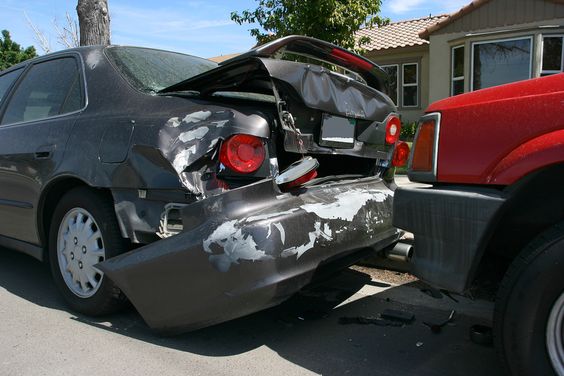Should I Seek Medical Attention After a Rear-end Collision?
Rear-end collisions often happen at low speeds, cause very little property damage, and result in both parties walking away from the incident unscathed. In fact, these accidents are often so harmless, and so common, that many people can even tell stories about rear-ending another driver, or being rear-ended, perhaps at a stop light or within a parking lot.
But rear-end collisions aren’t always insignificant, and rear-end crashes can even be fatal. In fact, an article published in The Washington Post reports that of about 1.7 million rear-end crashes reported each year, there are approximately 1,700 people killed and an additional 500,000 hurt. Combined with the fact that some injuries are not evident immediately, if you are considering not seeking medical attention after a rear-end crash, you may want to rethink that decision.
Common Injuries in Rear-end Collisions
Rear-end crashes can cause injuries that are as serious of as other car crash types, including spinal cord injuries, back and neck injuries, traumatic brain injuries, bone fractures, facial injuries, and more. What’s more, some of the injuries that are most common in a rear-end crash can take hours to become apparent. These injuries include:
- Whiplash and other soft tissue injuries, which can cause blurry vision, headaches, dizziness, pain and stiffness (muscle and ligament sprains and strains);
- Concussions and other types of traumatic brain injuries, which can cause vision changes, headaches, confusion, light and sound sensitivity, nausea, and balance issues; and
- Certain internal injuries.
The Importance of Seeking Medical Care
Because injuries aren’t always obvious, seeking medical care after a rear-end crash even if you feel OK is strongly recommended; seeking medical care can only help, not hurt, you and your car accident claim. Seeking medical care is valuable because:
- It improves the chances of an accurate diagnosis if you have been injured in a crash;
- It ensures that you receive the treatment and care that you need if you are injured;
- It establishes a connection between any injury and the rear-end collision;
- It serves as proof that you are doing your part to mitigate damages.
What Happens if I Don’t Seek Medical Care?
Consider a situation in which a vehicle rear-ends your car while you are stopped at a stoplight. The vehicle isn’t traveling very fast at the time of collision, but you feel jolted nonetheless. What’s more, the rear-end of your vehicle sustains damages.
Immediately after the accident, you feel okay. You get the other driver’s information so that you can file a claim for property damage, but you make the decision not to go to the hospital. The next morning, though, your neck and back feel sore – sore enough to the point where you’re not able to move around comfortably, pick up your child, or even get dressed. You tell yourself that it’s just soreness, and you’ll feel better in a few days.
Weeks pass. Your back and neck still hurt, and you have tingling in your arms and fingers. You’ve had to miss days at work, and your spouse has finally convinced you to go see the doctor. At your appointment, a doctor diagnoses you with a whiplash injury, and prescribes prescription painkillers, the use of a neck brace, and physical therapy. You realize that these things are expensive, and turn to the at-fault party’s insurance company to recover compensation for your medical expenses, lost wages, and pain and suffering.
But at this point, so much time has passed that the insurance adjuster questions whether the injury is related to the car accident, why you didn’t seek care if you were so badly injured, and whether you contributed to your injury by failing to seek care sooner. You now are engaged in an uphill battle trying to prove that you should be compensated. Had you sought medical care from the get-go, you may have avoided this dilemma entirely.
In some cases, whiplash might resolve within a few weeks or months, particularly if the patient undergoes appropriate medical treatment right after the injury. However, in other instances, the pain and discomfort of a whiplash injury can last for years, even for the victim’s entire lifetime.
Whiplash can cause the following long-term effects:
- Stiffness and chronic pain in the shoulders and neck
- Persistent bouts of dizziness
- Constant or transient ringing in the ears
- Lower or upper back pain
- Serious, chronic headaches
- Jaw pain
- Weakness, numbness, or sensory symptoms in the arms, hands, or legs
- Difficulty sleeping
- Blurry vision
- Memory issues
- Continual difficulty concentrating; permanent changes in personality
Whiplash Treatment
Your medical treatment provider will prescribe treatments that help reduce the pain whiplash causes and restore lost mobility. Various treatment approaches could be beneficial to you.
Whiplash treatments include the following:
- Hot and cold compresses
- Bedrest
- Physical therapy
- Painkillers
- Exercise
- Protective collars
The doctor might even recommend injections or surgical treatment to mitigate the worst symptoms in cases of severe whiplash. Sometimes the cost of such treatments exceeds medical insurance coverage amounts, which means that you may have to pay for a part of the treatments out-of-pocket.
Suffering from the Long-Term Impact of Whiplash? Understand Your Rights
A whiplash injury can have a significant effect on your daily activities and overall quality of life. Also, this injury will require continual medical care and time away from work. If you suffered a whiplash injury due to another’s recklessness or negligence, you should not have to bear the pain and associated expenses in silence.
Our Lawyers Are Here to Help
At the law offices of Garmo & Garmo, Attorneys at Law, LLP, we strongly recommend that you seek medical care as soon as possible after a crash. However, even if you don’t, our lawyers will work hard to prove your injuries and substantiate the damages you’ve suffered. If you have been in a rear-end crash and are pursuing a claim, please call our California car accident lawyers today for a free consultation about how we can help. Reach us at 619-441-2500, contact us online, or visit our law office in person.




